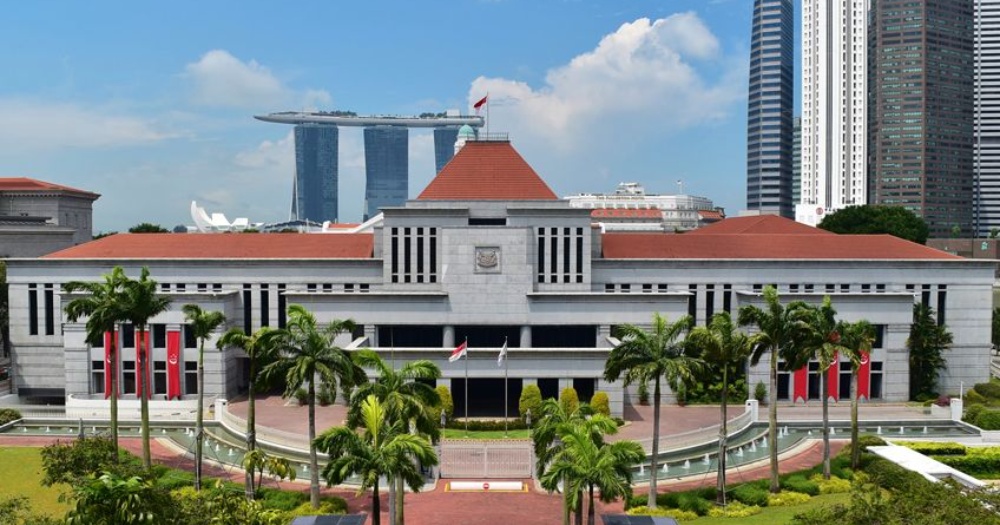Follow us on Telegram for the latest updates: https://t.me/mothershipsg
The government introduced a bill on Monday (Sep 13) to repeal the Sedition Act, a piece of legislation that criminalises seditious behaviour in Singapore.
The reason? According to the Ministry of Home Affairs (MHA), the Sedition Act is currently of limited application, due to the presence of new laws that are able to deal with similar offences in a more targeted manner.
This comes after the recent announcement during Prime Minister Lee Hsien Loong's National Day Rally that the government plans to pass a new racial harmony law, which is meant to put together the government's powers to deal with racial issues.
What is the Sedition Act?
The Sedition Act, which was introduced in 1938, criminalises conduct with seditious tendencies.
These include promoting disaffection against the government, bringing into contempt the administration of justice in Singapore, or promoting ill-will and hostility between different races in Singapore.
The Sedition Act also empowers Singapore's courts to suspend the publication of newspapers containing seditious content, and prohibits the circulation of seditious publications.
Why repeal it?
MHA said in a press release that new laws have since been introduced to deal with these concerns in a more targeted and calibrated manner.
These include the Maintenance of Religious Harmony Act, the Protection from Online Falsehoods and Manipulation Act 2019, the Administration of Justice (Protection) Act 2016, the Undesirable Publications Act, the Newspaper and Printing Presses Act, and specific provisions under the Penal Code.
However, MHA highlighted that one aspect of the Sedition Act, namely the portion on ensuring social cohesion between different groups within Singapore, continues to be relevant.
Hence, this is one of the offences in the Penal Code that will be amended, to ensure that this continues to be adequately addressed in a more calibrated way.
Amend section 267C of the Penal Code
MHA explained that presently, the Maintenance of Religious Harmony Act and sections 298 and 298A of the Penal code covers cases of disharmony involving religious and racial groups.
However, with the repeal of the Sedition Act, there is a need to ensure that Singapore has laws that can deal with serious cases of disharmony involving other groups, such as those who are identified or organised on the basis of religion, nationality or residential status.
Hence, MHA will amend section 267C of the Penal Code, which currently prohibits the making, possession or dissemination of material containing any incitement of violence against others, counselling others to disobey the law, or which is likely to lead to a breach of the peace.
It will be amended to cover other acts, such as speeches and other verbal communications that could lead to violence, disobedience to the law or a breach of the peace.
"At the same time, however, we will narrow the scope of application by requiring that the offender intended for the violence, disobedience to the law, or breach of the peace to occur, or knew or had reason to believe that these would likely occur," said MHA.
The section will also be amended to clarify that "counselling disobedience to the law" includes, but is not limited to, providing instruction, advice or information that promotes disobedience to the law.
Make certain Penal Code offences arrestable
In addition, since the offences under the Sedition Act are arrestable, MHA is proposing to make some offences in the Penal Code arrestable as well, in order to ensure that the police can continue to act swiftly and effectively in cases that affect social cohesion.
The offences include:
- Section 298, which criminalises the deliberate wounding of any person's religious or racial feelings
- Section 298A, which criminalises the promotion of disharmony between different religious and racial groups and acts which are prejudicial to the maintenance of harmony between religious or racial groups and which disturb the public tranquillity
- Section 505, which criminalises, among other things, the making, publication or circulation of material with intent to incite any class of persons to commit an offence against another class of persons
When was the Sedition Act used?
The Sedition Act was used only a handful of times throughout Singapore's history.
Back in 2015, two individuals behind The Real Singapore was arrested under the Sedition Act, after they posted remarks online that could promote ill-will and hostility among the different races in Singapore.
The two were later convicted under the Sedition Act, and was sentenced to imprisonment.
Related Story
Top image via Parliament of Singapore.
Follow and listen to our podcast here
If you like what you read, follow us on Facebook, Instagram, Twitter and Telegram to get the latest updates.
